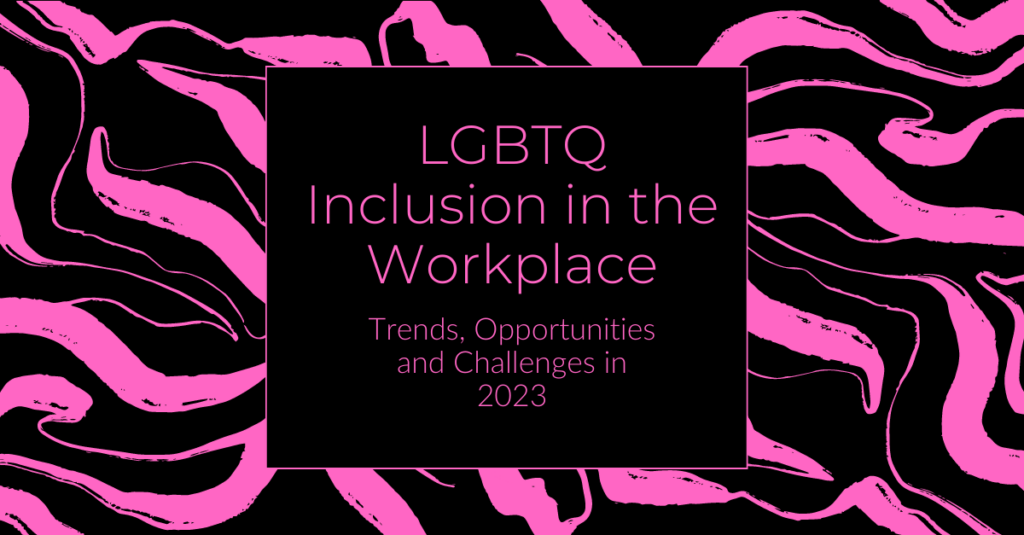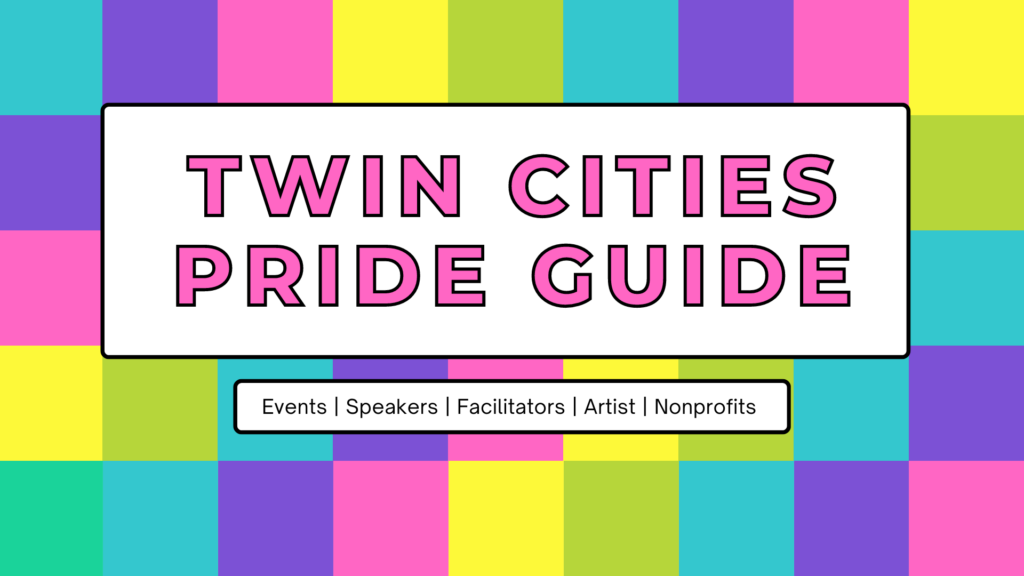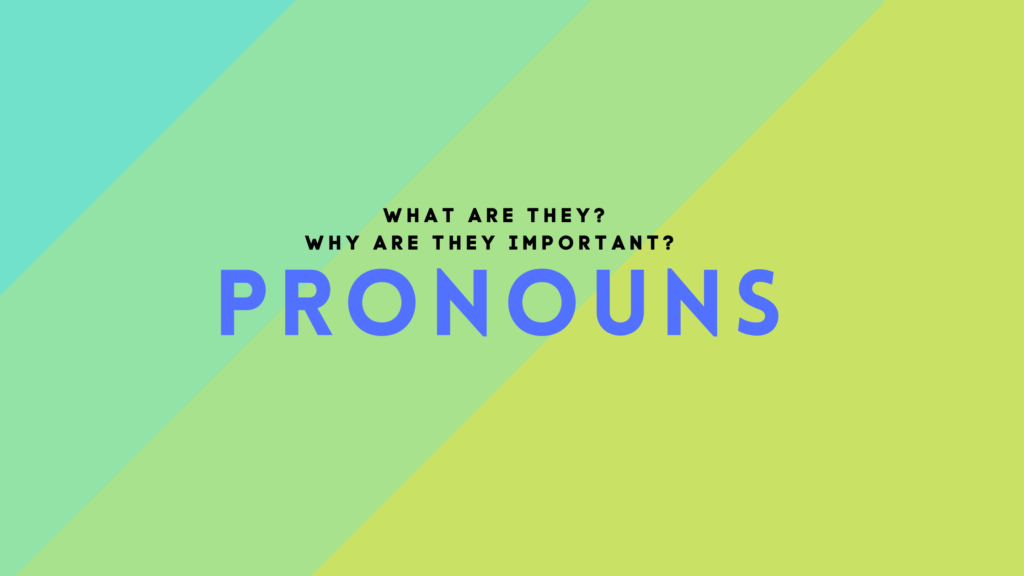
THE BEST JOB POST EVER
Looking for how to show your inclusiveness to everyone-LGBTQ in your job posts? We got you. Here are some of the best tips and tricks for showing-up to Queer people in an inclusive, eye-catching, and respectful way. Let’s start with job titles.
Job titles should be attention-grabbing while honestly describing the role itself.
- Don’t use spammy language like Hiring Now! or Apply ASAP! as it not only sounds fishy but let’s face it, too many exclamation points doesn’t start things off with the best hiring experience.
- Typical job titles are between 10 and 35 characters. Concise is always better!
- Avoid using all capital letters. It’s hard to read and feels like spam.
- It’s important to not include special characters (like emojis) in your title. This makes it easier to read and more likely to match the search queries from job seekers.
Write the job title in normal terms that everyone understands.
- Minimizing questions about the role saves you and the job seeker valuable time. If you are hiring a “Social Media Strategist”, call it that.
- Avoid too much internal mumbo-jumbo in the title, such as job post #’s and such. Yes, we get it: that’s helpful for sorting and tracking, but it’s hard for the job seeker to get through postings efficiently.
- Additionally, job seekers may misunderstand abbreviations or acronyms. Senior Web Designer is much clearer to applicants than Web Designer II, for example.
- Use the job title to describe the main aspects of the job. For example, Events and Sponsorships Manager is much more effective than just Marketing.
The key to effective job descriptions is to strike a balance between being concise and providing just enough detail so that job seekers can self-qualify.
- Pro tip: Jobs with descriptions between 700 and 2000 words get on average 30% more applications according to Jazz HR.
- You want to grab the future hires attention right away with your first few sentences. Think about what really separates your workplace from everyone else. Think about how you can tap into why you love the organization!
- Including some key information about your LGBTQ inclusion initiatives that a future hire could get involved in is a great addition.
- Include employee resource groups, diversity councils or task forces, mentorship programs, and professional development opportunities (such as attending Mossier meetups, nudge-nudge).
- It’s all about telling the story about how the job functions within the org, and helping future hires see themselves in your culture.
Honesty is always best: LGBTQ people are more likely to think of themselves as unqualified for a position, so don’t exaggerate the responsibilities of the role.
- If it’s a finance director role that requires 80% time to be spent in budgeting conversations with the accounting department, describe the role as being primarily focused on collaborating with accounting so that you reach future hires who are skilled in this area.
- If the position requires 20% travel or calls for 50% writing, tell them that. All of this helps ensure your future hires are going to enjoy their day-to-day responsibilities.
Have a real convo with your team about what skills, education and/or certifications are actually required and which one’s are just nice to have.
- Again, LGBTQ folks are less likely to apply if they don’t meet every one of your requirements. If some skills, like educational or certifications, are required and others are just nice to have, say that. If future hires think they are under qualified, they won’t want to waste their time applying.
- Years of Experience is another category that is super gray. If years of experience doesn’t really matter, or if there is a wide range of experience that could potentially succeed in the role, then make that clear. “Years of experience” is one of the biggest barriers to marginalized future hires going after bigger roles. Not everyone has access to top business schools or internship opportunities.
Show future hires the money!
- Transparency, folks! All position descriptions should include a compensation range and a baseline overview of the benefits your organization offers. This is simply about equity.
- Working is about a livelihood first and foremost and so ensuring that LGBTQ future hires know what the opportunity entails saves everyone a headache.
- It also ensures that your organization over time is working on a standard set of best practices for setting pay so that you don’t intentionally wind up with pay inequities.
- In general, unpaid internships are frowned upon. All work has value and that nobody should work for free.
- Always be sure to outline other forms of compensation like educational credit, transportation and living stipends, etc. These are important considerations for your job seekers!
Provide the specific job location and your company name.
- We’re bettin’ you know this, but job boards use algorithms to determine which jobs a future hire sees based on the job’s location and the future hire’s search criteria.
- Job postings created on Mossier’s job board should always specify the country, city, state/province, and zip/postal code where the job is located — even for permanent, fully remote openings. Without a defined location, we will not be able to index the job in search results. Bonus tip: Use your keywords, they matter every time that someone searches for something specific!
- If you are posting a remote position (permanent or temporary), please refrain from posting it a bunch of times with different locations. This is called “location spamming” and job board algorithms don’t like it. Job seekers don’t like it either, and isn’t that the point of all of this?
More must-haves for your descriptions:
- Break up paragraphs with empty lines to make your description easy to read.
- Avoid large blocks of text. We love bulleted lists!
- Give job seekers a sense of your organization’s style and culture. People want to know what you’re doing to make your workspace equitable, welcoming, and values what employees bring to the role.
- Include an overview of employee benefits, salary, schedule, and other perks.
And when it comes to the Mossier job board, good hygiene means removing positions once they have been filled.
- We’ve been there before: You apply for a job and then you find out there wasn’t an actual opening. Ugh! Keeping Mossier’s job board up-to-date with only quality, open positions helps us build trust with future hires and keeps them coming back (and referring to their friends, too).
- Mossier’s job board allows you to set an expiration date for the posting but please try and remove postings if they are filled before the expiration date.
Hey, this is a community, after all: What are your tips for job posts? Anything that you’ve stumbled onto and can’t forget? Start a convo in the group forums!





